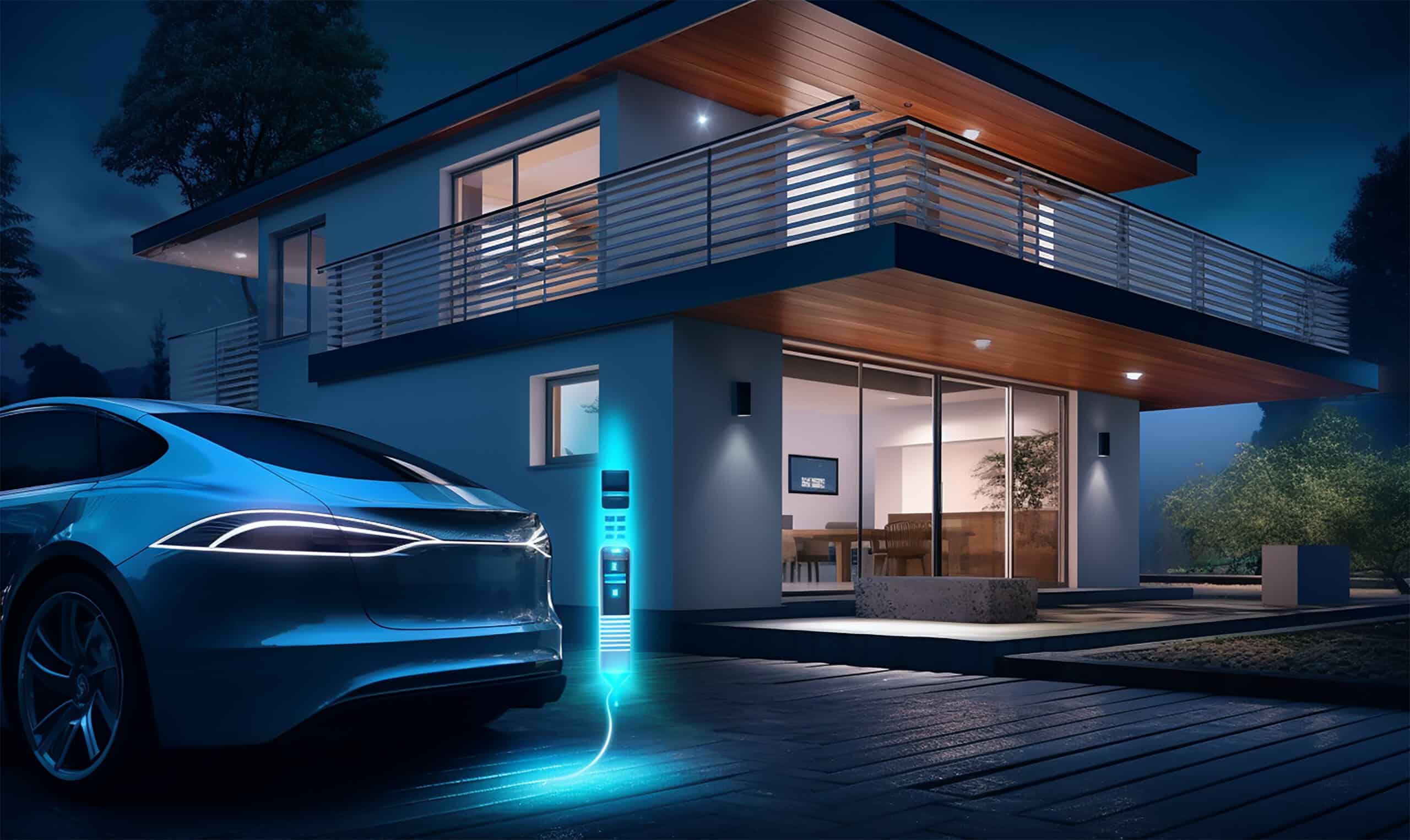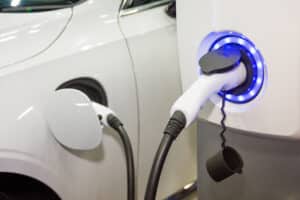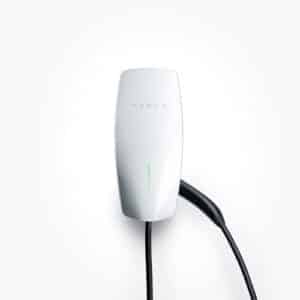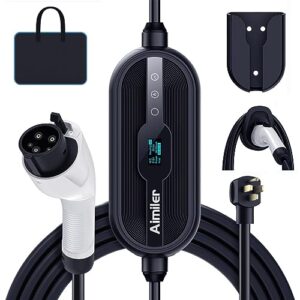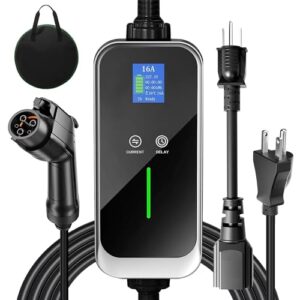How Long Does it Take to Charge an Electric Vehicle at Home?
Key Takeaways
- The average time to charge an electric vehicle at home can range from a few hours to overnight, depending on factors such as the power source, charging capacity, and battery size.
- Best practices for charging an electric vehicle at home include avoiding fully charging or depleting the battery, not overcharging the battery, considering cold weather conditions, adjusting driving habits in cold weather, and trusting in battery management by car manufacturers.
- Factors that can affect the charging time of an electric vehicle at home include the charging station’s maximum charging rate, the charging capacity of the EV itself, the size of the battery, weather conditions, and the type of power source used.
Charging an electric vehicle (EV) at home is a convenient and cost-effective way to ensure your car is ready to hit the road. However, the time it takes to fully charge an electric vehicle can vary depending on several factors, including the power source, the vehicle’s charging capacity, and the size of the battery. In this article, we will explore the average charging times, best practices for charging, and the factors that can influence the charging process.
Average Charging Time
The average time to charge an electric vehicle at home can range from a few hours to overnight. Using a Level 2 power outlet, which provides higher charging capacity than a standard household outlet, it can take up to 12 hours to fully charge an electric car.
It is important to note that the charging time may vary depending on the specific make and model of the EV, as well as the size of the battery. Some EVs have larger batteries and higher charging capacities, allowing for faster charging times. It is recommended to consult the manufacturer’s recommendations for your specific vehicle to determine the estimated charging time.
Best Practices for Charging
When charging an electric vehicle at home, there are some best practices to follow to ensure the longevity and efficiency of the battery:
- Avoid fully charging or fully depleting the battery: It is recommended to avoid going below 10% or above 90% charge. Fully charging or depleting the battery on a regular basis can put additional stress on the battery and reduce its lifespan.
- Do not overcharge the battery: Some EVs are equipped with notifications that alert you when you’ve charged beyond your daily driving limits. Overcharging the battery can also lead to unnecessary wear and tear.
- Consider cold weather conditions: Cold weather can impact the performance and range of the battery. It is suggested to drive the vehicle around to warm up before charging it from a completely cold state.
- Driving habits in cold weather: In colder temperatures, driving faster can significantly reduce the battery’s range. It is advisable to adjust driving habits accordingly to maximize the efficiency of the battery.
- Battery management by car manufacturers: Car manufacturers continuously monitor and adjust the way the vehicle utilizes its battery as it ages. This process is done automatically through software updates, and battery health data is often sent back for analysis.
- Future battery breakthroughs: Lithium-metal batteries are expected to be the next major breakthrough in EV technology. These batteries promise higher intensity, longer range, and lower costs, further enhancing the charging experience for electric vehicle owners.
Factors Affecting Charging Time
Several factors can influence the charging time of an electric vehicle at home:
- Charging station’s maximum charging rate: The maximum charging rate of the charging station can impact the speed at which an EV charges. A higher charging rate can result in faster charging times.
- Charging capacity of the EV: The charging capacity of the EV itself determines how quickly it can accept and store energy. EVs with higher charging capacities will generally charge faster.
- Battery size: The size of the battery also plays a role in the charging time. Larger batteries will require more time to charge compared to smaller ones.
- Weather conditions: Extreme weather conditions, such as very cold or hot temperatures, can affect the charging time and overall performance of the battery. It is important to consider these factors when planning to charge an EV at home.
- Type of power source: The type of power source used, such as Level 1 or Level 2 chargers, can impact the charging time. Level 2 chargers provide higher charging capacity and are capable of charging an EV faster than Level 1 chargers.
It is worth noting that charging an EV when the battery is below 20% or above 80% can significantly slow down the charging process. Therefore, it is recommended to avoid charging within these ranges whenever possible.
In conclusion, the time it takes to charge an electric vehicle at home can vary depending on various factors, including the power source, charging capacity, battery size, and weather conditions. By following best practices and considering these factors, EV owners can optimize their charging experience and ensure the longevity of their battery.
Related Websites:
FAQs:
Q: What are the different charging levels for electric vehicles?
Electric vehicles have three different charging levels: Level 1 charging uses a standard household outlet and takes the longest time, Level 2 charging requires a dedicated charging station and charges faster, and Level 3 charging, also known as DC fast charging, is the fastest charging option available.
Q: How does ambient temperature affect charging time at home?
Ambient temperature can affect charging time for electric vehicles. Extreme hot or cold temperatures can decrease the efficiency of the battery and slow down the charging process. It is recommended to charge your electric vehicle in a moderate temperature environment for optimal charging speed.
Q: How can I estimate the charging time for my electric vehicle at home?
To estimate the charging time, you need to consider the battery capacity of your electric vehicle and the charging rate of your charging station. The higher the battery capacity and charging rate, the faster the charging time. There are various online resources and tools available that can help you accurately estimate the charging time for your specific electric vehicle model.
Q: What factors can speed up or slow down the charging process?
Several factors can affect the charging process. The battery capacity and state of charge, the charging rate and power output of the charging station, the type of electric vehicle and its onboard charger capacity, and the ambient temperature can all impact the charging time. Additionally, using smart charging features, charging during off-peak hours, and utilizing public charging stations when needed can also speed up the charging process.
Q: Why is it important to consult the vehicle’s manual or manufacturer’s guidelines for charging?
Consulting the vehicle’s manual or manufacturer’s guidelines is crucial because different electric vehicle models may have specific charging requirements. The manual or guidelines provide important information about the recommended charging levels, charging rates, and other factors to consider, ensuring safe and efficient charging for your specific electric vehicle.

